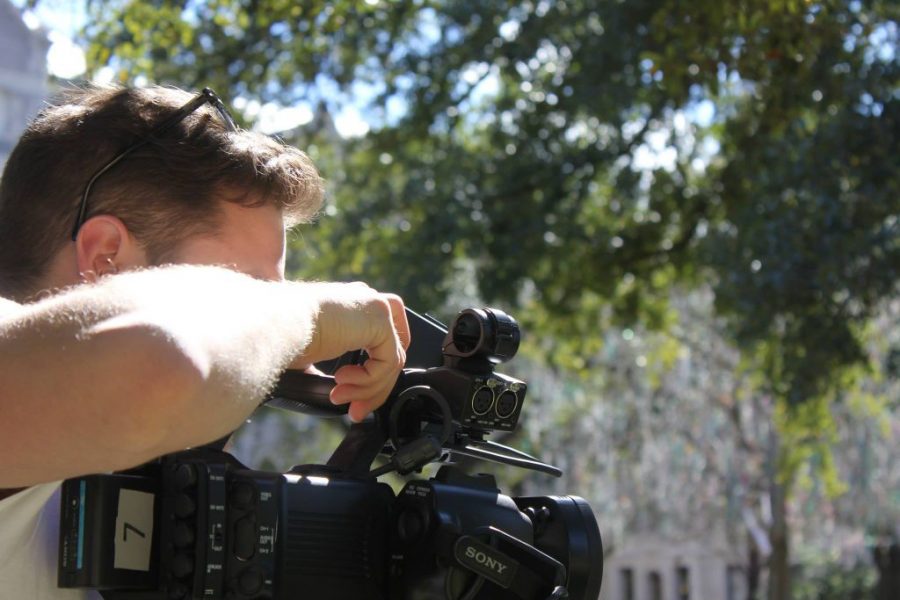Capstone no longer Newcomb-Tulane core requirement
Senior Brandon Kaplan is in the process of filming a movie for his capstone in Digital Media Production on the Academic Quad.
April 22, 2015
The Newcomb-Tulane faculty decided in December that the Newcomb-Tulane College will no longer require each department to offer a capstone course.
The capstone requirement was first implemented after Hurricane Katrina when the Office of the Provost was determining the general education requirements for Tulane. Since then, certain departments have felt that they were unable to deliver an effective capstone to students.
The capstone is meant to serve as an accumulation of all the knowledge gathered during the student’s time at Tulane for the equivalent of a senior project.
Newcomb-Tulane College Dean James MacLaren said reviewing the effectiveness of some departments’ capstone requirements led to this decision.
“We found that capstones vary significantly from department to department,” MacLaren said. “Having the college determine what was or was not a capstone didn’t seem to make sense. Departments or schools should be able to decide [what makes] sense in their discipline.”
MacLaren said that many of the Newcomb-Tulane faculty thought the capstone didn’t serve a purpose in majors that had a lot of variability.
“When you think about other majors, take many of the liberal arts majors that don’t have a lot of required classes. There is immense variability in a major, so if you are a history major or English major, there are very few required classes. Then, how do you define a capstone in a reasonable way?”
Senior Brandon Kaplan said he supports the capstone requirement and that majors that don’t keep the capstone should require something in its place.
“I appreciate and support the capstone experience because, as a student in the arts, it acts as an accumulating experience for our talents and skills,” Kaplan said. “I think students in other majors should have some sort of senior experience to tie everything together that they’ve learned in their studies before they graduate.”
Some departments were struggling with staffing and their ability to provide all students within a department with the capstone experience.
“Departments with huge numbers of majors could not implement an effective capstone, Psychology being one among others,” MacLaren said. “They felt they were not achieving their goals, because they just couldn’t staff the number of students through a capstone.”
Majors that no longer require a capstone will be able to reallocate professors to teach other different types of classes. Some students who double major will be required to take both major’s capstones.
Senior Hannah Kojm said the capstone might not be the best for all majors, but that she liked the idea of it.
“It’s beneficial but also kind of problematic,” Kojm said. “A capstone really gives students a chance to grow and expand in what they want to learn. A lot of the times capstones are the really interesting classes, but also everyone varies in what they like. It’s hard to require students to take a specific capstone.
Kojm said that the current design of capstones makes it hard for some students to get the experience they want.
“I am a history major, and I took a capstone called New Directions in Womens’ history,” Kojm said. “I really liked it, but at the same time a friend of mine didn’t like hers.”






















Leave a Comment